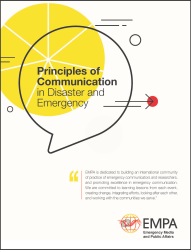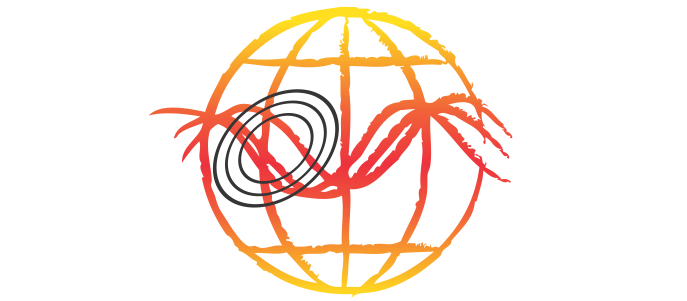PAST PRESENTATIONS
Recordings and presentation slides will be made available to registered delegates following each webinar and then uploaded here for general access in a few months time.
Click on the webinar title below to access the recording and read more information about the sessions and presenters.
RECENT WEBINARS
APRIL 2024
Wednesday 24 April, 10:00 AM (AEST) | 8:00 AM (AWST) | 12:00 PM (NZST)
Using culturally appropriate communication to reach diverse communities
Dr Kate Delmo, University of Technology Sydney and Melinda McDonald, Fire and Rescue New South Wales, winners of the 2023 EMPA Australia Awards for Excellence in Emergency Communication for the Research category, will speak about reducing risk and increasing community resilience in culturally and linguistically diverse communities through culturally appropriate communication.
MARCH 2024
Wednesday 27 March, 10:00 AM (AEDT) | 7:00 AM (AWST) | 12:00 PM (NZDT)
How communicators’ experiences as survivors inform their practice
EMPA’s March webinar focus centres on how an individual’s life experience has shaped and influenced their role/career as a communicator.
The panel will include:
- Bron Sparkes from NEMA Australia (2009 Black Saturday Bushfires)
- Travis Green from Queensland SES (Mt Tamborine tornado, Christmas 2023)
- Luke Shelley from Australian Bureau of Meteorology (Cyclone Kirrily)
Our facilitator, Kathryn Ruge (EMPA Board) also has personal experience of various incidents, including the 2011 Christchurch earthquake.
FEBRUARY 2024
Which EMPA Principle? Approaches to working with communities in recovery
The EMPA Principles of communication in disaster & emergency aim to go beyond the one-line statements and offer insight into the context and guidance towards making the aspirations into realistic good practice.
The last few years have seen their fair share of disasters and recovery and situations that we are continuously learning from.
In February’s webinar we invite three guests to speak on Which EMPA Principle was most relevant or has been applied in their experiences of recent disaster and recovery.
The panel will include:
- Mark Trüdinger from Northland Civil Defence (Cyclone Gabrielle)
- Mike Wassing from Queensland Reconstruction Authority (Cyclones Jasper and Kirrily, SEQ storms and tornado – all since December!!)
- Christian Longobardi from South Australia Department of Premier and Cabinet (2022 Murray River flood)

Click the image above to read the full EMPA Principles document.
PAST WEBINARS
2023 Webinars
EMPA Principles #6: Working with media and social media providers
Getting to know NEMA Australia
In conversation with: Kjell Braatas
Revisited – EMPA Principles #6: Working with media and social media providers
Is the ‘Future Survivor’ the survivor of today?
The journey and story behind Me, Myself and Disaster
What we’ve learned from the Exotic Animal Disease Preparedness Report
NHRA Research: Community experiences before and after floods
Future focus of AIDR – Australian Institute of Disaster Resilience
2021 Webinars

